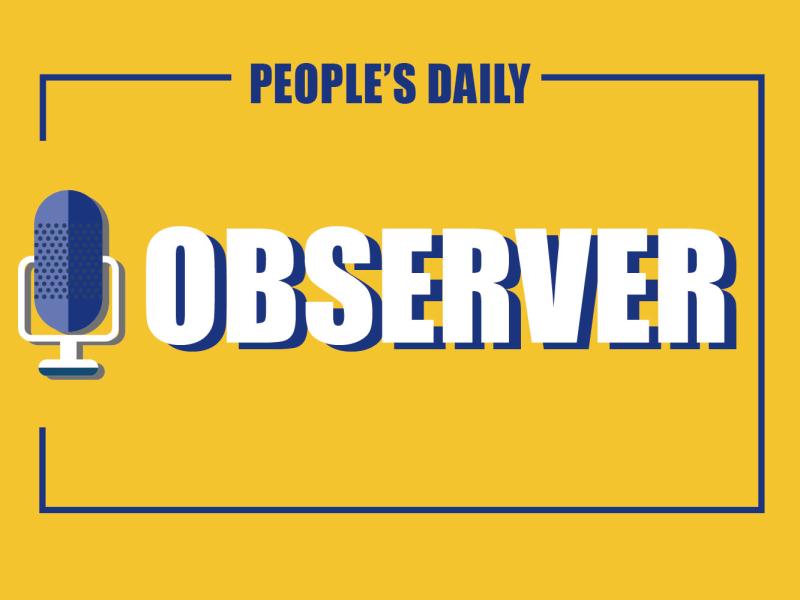
Diplomatic relations between China and the EU have been tested in recent months amid a dramatic shift that was triggered by EU's move, for the first time in more than thirty years, to impose sanctions against China over "forced labor" allegations in the country's Xinjiang Uygur Autonomous Region.
The sanctions indicate the EU's stance against the so-called "human rights violations" on the one hand, and the bloc's attempt to bring it more in line with US on the other, as the world's superpower is sparing no effort to lobby against China within and beyond its alliances.
Earlier on, the EU also interfered in China's domestic affairs in Hong Kong, provoking disputes. In disregard of common interests with China, the EU has, to some extent, lost "strategic autonomy" in approaching China.
Over the years, strategic autonomy has become one of the frequently used catchphrases in European policy circles. Leaders of several EU countries, including French President Emmanuel Macron and German Chancellor Angela Merkel, have underlined the need for the bloc to pursue strategic autonomy and devise its own foreign policy.
For any country in the world, safeguarding national interests should be primary goals and ambitions in establishing foreign policies. The same can be true to the 27-nation bloc as a model for regional integration too.
Reluctant as Washington is to see a sound China-EU cooperation, it will serve the fundamental interests of both Beijing and Brussels. Data from EU statistics agency Eurostat has indicated that China overtook the US as the EU's biggest trading partner in the pandemic-hit 2020. China's rapid bounce from the coronavirus slump has fueled demand for EU goods, such as cars and luxury goods, which in turn helps to bolster Europe's economic recovery. The two sides can also be strategic partners in addressing challenges threatening international communities, such as terrorism and climate change.
Given the significance of China-EU relations, the EU needs to view the bilateral ties from the big picture. There are broad areas of common interests and cooperation between the EU and China, not less than that between EU and US. Last December, Beijing and Brussels reached a landmark comprehensive bilateral investment agreement in principle after seven years of talks, under which China and EU will see a level playing field and a wider access to each other's market.
Brussels should no longer be blinded by an America-dominated alliance strategy. US Secretary of State Antony Blinken emphasized at a top-level meeting that the US would like to revitalize transatlantic partnership and seek for Europe to take a tough line towards Beijing in the future. Washington's drastic shift from what it actually did in the Trump era has been regarded as part of the US attempt to form an alliance against a rising China. This engagement is more of a slippery slope leading onto geopolitical confrontation for Brussels. The EU would be led nowhere near the strategic autonomy it has been looking for over the years if it pursues a common foreign policy with the US.
History has proven that the EU may have been a very reliable ally for the US, but the same can't be said about the US vis-a-vis EU. One of the latest conflicts between US and the EU is about Nord Stream 2, an underwater gas pipeline linking Russia and Germany under the Baltic Sea. Once completed, the pipeline will transport natural gas into the EU to enhance security of energy supply and support climate goals. Despite EU countries' demands to respect their economic interests and rights, Washington has decided to act aggressively and threatened sanctions against the project's contractors, citing concerns over the EU's dependence on Russian energy. It becomes self-evident that purely political and selfish economic considerations were behind the actions of Washington's policy-making.
It's time for the EU to pursue its strategic autonomy, as it often proclaims, especially in dealing with China at this time. As a major role in a multi-polar world, Brussels should define its very own foreign policy based on the bloc's long-term interests rather than being a puppet of Washington clinging on to its hegemony.


